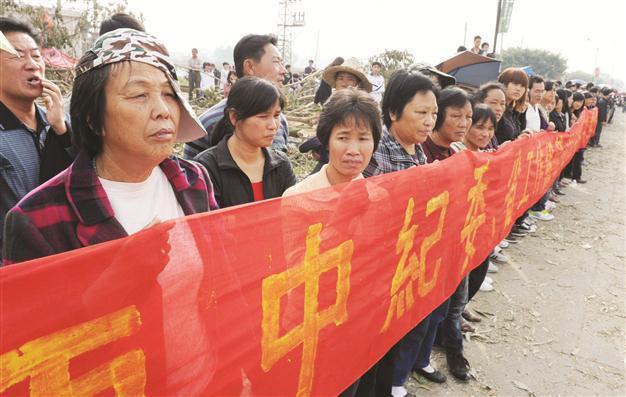Soaring local debt threatening China
BEIJING - Agence France-Presse

Villagers wait for the return of leader Zulian after his meeting with a government official as they reached a deal over land grabs in Wukan, Guangdong, Dec 21.
Local governments across China have borrowed billions of dollars to build bridges, apartments and shopping malls, leaving many insolvent and endangering the country’s financial system, analysts say.While the central government in Beijing is in good financial shape, it is a different picture outside the capital. Local governments had borrowed 10.7 trillion yuan ($1.7 trillion) - 27 percent of gross domestic product - by late 2010, according to official data, though ratings agency Moody’s believes the figure is underestimated by 3.5 trillion yuan.
Several provinces have since published reports showing their debt-to-GDP ratio was higher than the national figure. Moody’s believes that between eight and 10 percent of loans made by Chinese banks will never be recouped.
“Debt across the board is rising very quickly,” weakening the banking system, said Michael Pettis, a specialist in Chinese financial markets at Peking University. “But any attempts to slow its growth results in a rapid reduction of investment and (economic) growth.”
China’s total public debt stands at 68 percent of GDP, well below Italy’s ratio of 120 percent or Japan’s which stands at more than 200 percent. But when it comes to local authorities the key concern is repayment. To meet their commitments local governments need to generate income from land sales, which is fuelling unrest as residents complain that land is being unlawfully seized.
Protests rising
Such allegations have culminated in protests, such as the one in Wukan in the southern province of Guangdong last month, where villagers staged a revolt against authorities they said had been stealing their land for years. Another source of income is from infrastructure projects, many of which are not profitable or legal. Investment in highways, malls and apartment buildings has been a key driver of the economy in recent years, especially since the 2008 global crisis.
















